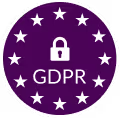Finding the executive coaching service that is the best fit for your organization takes time and insight. After all, we’re talking about training your top people here; their skills often determine the future of the company. Similarly, every organization has its “own way of doing business”, while every executive tends to mesh with certain types of people. All of these factors and more should be part of your search for an executive coach.
A Brief Look at Executive Coaching Services
Executive coaching was the original focus of many learning and development programs due to the critical value of executives to the success of the company. Even today, with a realization of the importance of general business coaching for every employee, executive coaching is still essential. It provides a method of one-on-one executive development where the coach guides the client towards understanding how they can improve. After cooperatively deciding on a plan of action, the coach then monitors progress as the executive seeks to (among other things):
- Develop self-awareness
- Improve their ability to make critical decisions and strategic plans
- Take on new roles and effectively communicate with employees
- Deal with stress, conflict, and constant change
- Learn new ways of motivating the modern workforce
Sound like a lot of effort? It is, but executive coaching programs deliver noticeable benefits to the organization. One source estimates that they provide up to a 600% return on investment.
Why Executive Coaching Services Are Different
Some HR teams believe that executive coaching and leadership coaching are the same, but they are not. On the one hand, leadership skills can be found throughout companies – think, for instance, of the experienced salesperson who helps the new guy learn the tricks of the trade. On the other hand, executives have a special place in the organization, and therefore have a wider range of needs and expectations than other types of leaders.
These facts mean that executive coaching services are subject to a unique set of factors:
- “Time is money” applies more to executives than anybody else. Executives tend to be in constant demand for advice and decisions. Every minute they spend with a coach is a minute that the organization cannot access them.
- Executives are at the top of an organization and have the skills to match. Any executive coaching program needs to get those skills to an even higher level. Yet how is that possible? Many of the world’s leading executives actually use coaches, but these coaches are not more knowledgeable about business than their clients are. In addition, it’s obvious that not all executives have the same roles or responsibilities, but a coach should be able to help a client regardless of specialized business field.
- At least some of the time, a success-driven mindset is part of a “highly motivated personality” (otherwise known as “difficult”). An executive coach must be able to deal with clients who are under pressure and have little patience. Coaches need to establish the kind of interpersonal chemistry that leads to a good coaching partnership. Similarly, these coaches must be productive right from the start of the program as a way to prove their professionalism.
- Top leaders tend to live in a world of cause and effect. They expect good planning and tangible results, and when they don’t see such factors, they react. Executives also influence other L&D programs in an organization because they are the ones who approve them. This is as opposed to courses at other levels, where employees, if they have negative feedback, usually don’t have the power to make immediate changes.
Features of Excellent Executive Coaching Programs
In light of the above, a productive executive coaching service should be sourced with an emphasis on the following “Four Ms”:
- Minimal Time
An executive coach needs to get a lot done in a short period of time. Their goal is often to change a fundamental aspect of their client’s behavior, as business coaching in general focuses on soft skills. A quality executive coaching service will, as part of their proposal, have a condensed tried-and-true course schedule as part of their offerings. One such approach is to use “sprints”, a technique borrowed from the Agile Development concept. These are intense, short coaching periods designed to impart maximum knowledge in minimum time.
- Method
An executive coach needs to bring someone who has already excelled in their career to a higher level. One method for accomplishing this is through the “clean coaching” process. Stated simply, this consists of the coach guiding the executive towards understanding where they can improve and how to do so. The coach only asks questions and gives feedback, while it’s up to the client to provide the right answers and change their own behavior. To quote Google’s Eric Schmidt: “The one thing that people are never good at is seeing themselves as others see them.”
- Matching
A coach and a client need to “mesh” on a personal level because they work together closely to resolve what might be issues that are personal to the executive. Unique matching algorithm is a technology that can be used by HR to connect the right client with the most suitable coach. But this is only the first step. A second way to optimize the connection between coach and client is a simple “meet and greet” session, followed by feedback, where both the coach and the executive can say “no” before the actual engagement starts. Once again, experienced coaches should incorporate this as part of their timeline.
- Metrics
Evaluating a critical initiative like an executive coaching program is a tough task. Soft skills development is a challenge to measure because such skills have a subjective quality. This is an even more complex issue for an executive, as they are part of a team that is also affected by each individual’s abilities. For example, if the subject of the engagement is communication, and different executive team members prefer different styles of communication, then how do you gauge success? Asking an executive coaching service about their approach to this issue should be part of your shopping list. They might use one of the common evaluation models, but HR teams need to be aware of their flaws.
Useful Tips
In addition to the points listed above for choosing the best executive coach for your needs, here are some additional best practices for sourcing coaching engagements in general:
- Research the exact professional areas that the coaching service provides.
- Use a high-quality L&D search platform that gives you access to a wide range of experts.
- Look into a prospective coach’s education, certifications, mentions in the media, client list and recommendations, and professional history.
Searching for an Executive Coach? Ask Growthspace
Growthspace supports executive coaching, among a variety of other learning and development programs. What makes Growthspace different is a focus on metrics, human-to-human interaction, the world’s most robust talent development dataset, and a global network of over 2,000 experts. Executives searching for coaching services can choose from programs such as 1:1 sessions, team coaching, and cohort-based workshops. Similarly, HR teams searching for excellence can look at hundreds of satisfied Growthspace customers, including Siemens, Microsoft, EY, Deloitte, J&J, ZoomInfo, and the U.S. Government. Clients like these have boosted business performance by 5%+, lowered attrition by 10%, and increased their promotable base by 30%.
Ready to turn insights into impact?


















